We're experiencing a moment of change and transition in our working life. Covid-19 has speeded up this process and, right now, companies are trying to adapt to remote working and maintain normal activity levels. This is usually the responsibility of the human resources department. It's their job to innovate and drive this change.
 At Kenjo, we always try to connect with the most innovative companies and those who can spot trends and incorporate them in record time. We interviewed Julien Palier, CEO of Daysk, to get his take on the times we're living in. His vision of fluid offices may be particularly interesting for those who are trying to adapt their offices to the new normal.
At Kenjo, we always try to connect with the most innovative companies and those who can spot trends and incorporate them in record time. We interviewed Julien Palier, CEO of Daysk, to get his take on the times we're living in. His vision of fluid offices may be particularly interesting for those who are trying to adapt their offices to the new normal.
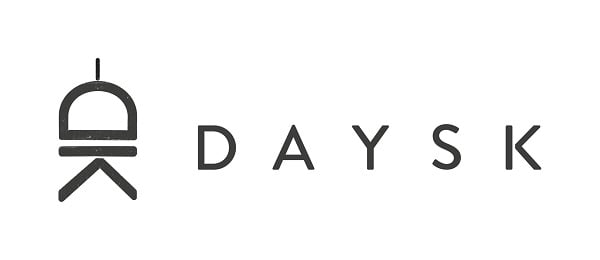
What's the biggest challenge SMEs face while managing their staff during this new normal?
Without a doubt, having to adapt to a new operating model where teams are no longer able to work "as before." Each company has had to reinvent its operations. Lockdown has meant that we've all been forced to work from home and few companies were sufficiently prepared to make this transition smoothly.
We've learned that:
- It is possible to work remotely.
- Remote working offers huge benefits for both companies and employees.
The increase in productivity has been remarkable; we hear this regularly in the feedback we get. Teams have realised how much they can save in commuting time, as well as in their monthly budget (transport, meals, etc.).
Ultimately, Covid-19 forced a transition that wasn't at the top of anyone's priority list, but that has now become a necessity. We need to progress from the improvisation phase and continue to improve with:
- Better access to the tools that facilitate these processes (technology).
- Training for our teams (in terms of leadership, soft skills like time management and communication, etc.).
- A better definition of remote working: who does it involve, when and how, either within companies or from a renewed and suitable legal framework.
How can DAYSK help prepare offices for the new normal?
In the short term, by offering security to manage and facilitate the return to offices. In the medium term, by supporting companies in the transformation process towards a more distributed model with multiple places of work. For example, we see that many companies are starting with a gradual return to the office. These include remote working, something which is here to stay.
In the short term, our technology enables companies to control the seating capacity and social distancing; offer alternatives to working from home with access to a network of coworking spaces. You can do all this in a single integrated reservation system for rooms and offices.
Daysk also offers communication channels to keep the whole team updated, with notifications and monitoring of external visitors, access to lifts, canteens, etc. It's a turnkey system that automates the management of all post-COVID-19 workplaces.
We can also apply these new technologies to support companies with their digitisation plans. We can help to optimise office space (desk sharing, data analytics), budgets and team productivity.
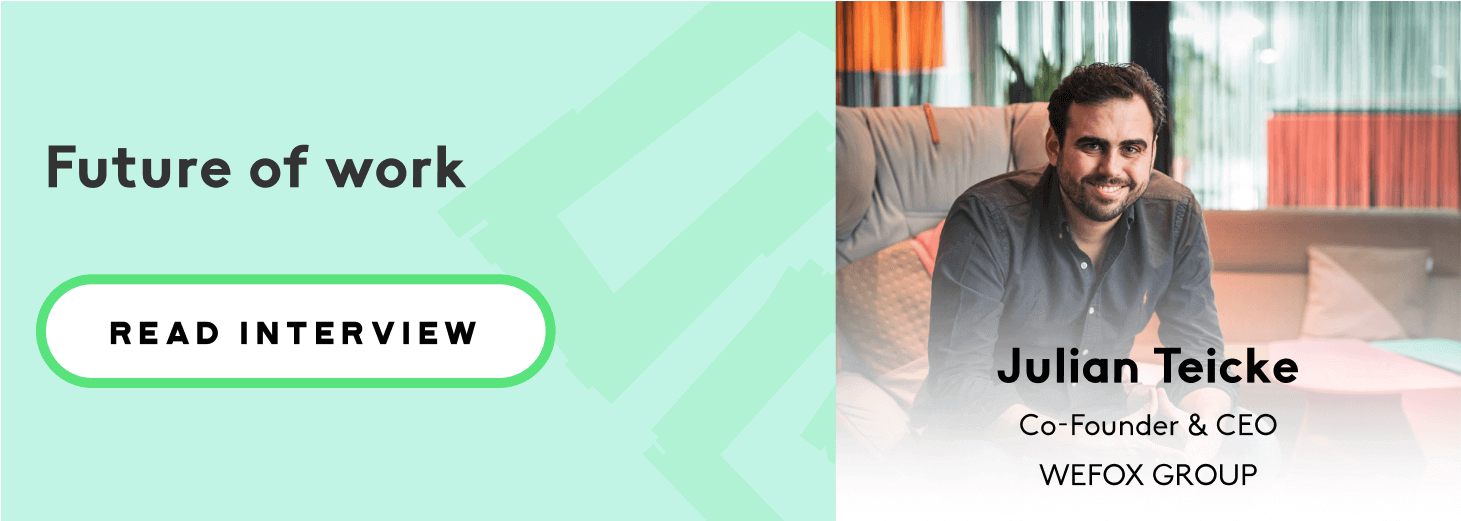
Who should lead this project internally in a company, to prepare the office for the new normal?
It very much depends on the company. The responsibility is usually shared between facilities management, general services and people management. IT will also lend their support by validating the robustness of the system and to to help if additional integrations are needed. Large companies have a dedicated committee for this. In SMEs, it's usually the HR department with the support of office managers.
We can see that Covid-19 has caused a reality shock and companies are using this time to rethink their people management strategies and their office setups. These are high-impact projects, in terms of people and budget, which need several key departments in the company to be in alignment.
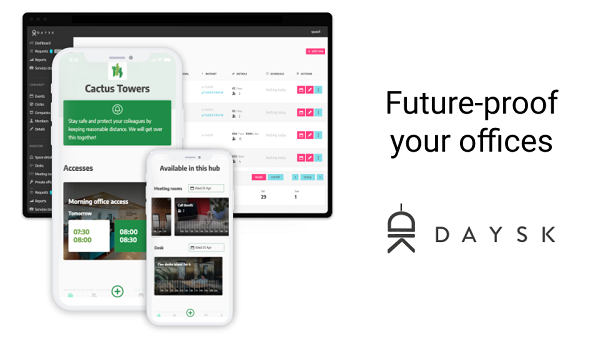
Which processes should a company establish to ensure the health and well-being of their employees?
Guaranteeing the health and well-being means safeguarding the team's working and emotional environment, especially in the present context. We recommend working in parallel to the change and adjust the protocols and modifications of the facilities. On the other hand, you also have to think about the intangible aspects that affect team management.
Define the context of returning to the office:
- Changes in the facilities are essential (furniture, protection screens, gel, etc.).
- New protocols must be implemented (distancing, flow of movement, etc.).
Define processes that can support the team:
- Tools to improve task management, communication...
- New guidelines to improve this communication.
- Support and training to update us on these challenges.
Which technology can support these processes?
Tech tools that cover both aspects of the challenge are ideal: people management and office management. Implement a people management system that helps to coordinated the team, digitise routine management processes, as well as messaging software to facilitate communication and coordination. Kenjo covers most of these needs.
On the other hand, office management is a new challenge that didn't exist before. That's where Daysk comes in. Desk and room booking with Covid-19 tracking, access to coworking, event management and other features for "fluid companies".
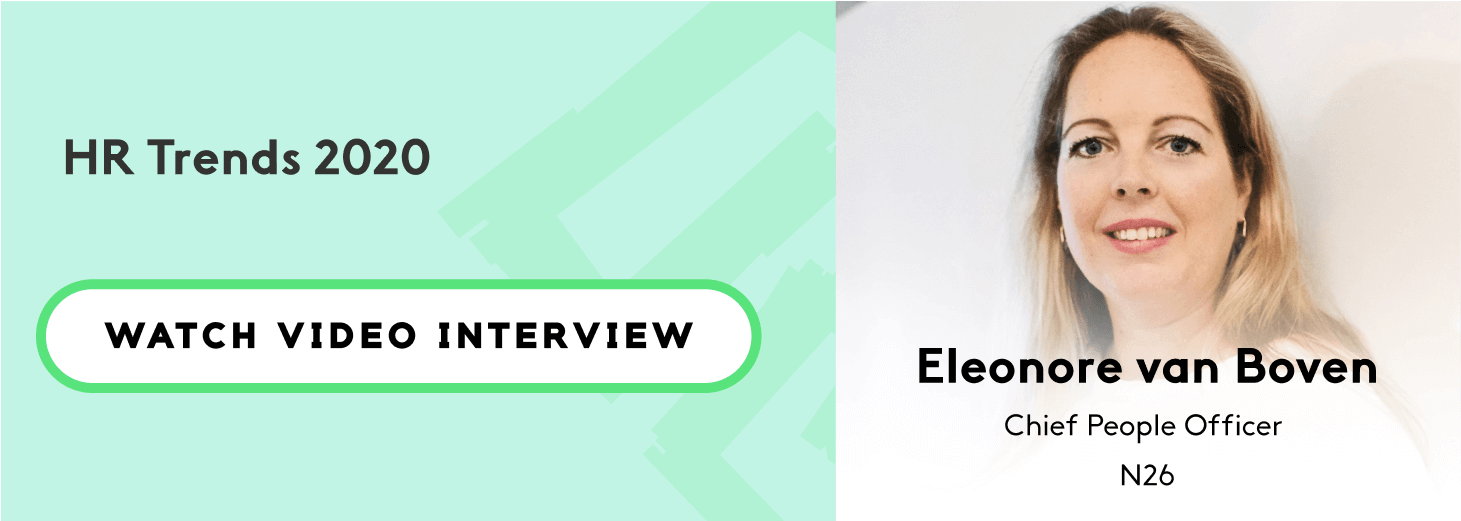
Are Spanish SMEs culturally prepared to make the transition to "fluid" offices?
As I mentioned before, it's been a big shock. But the good thing about the Spanish business community is that it knows how to adapt quickly. SMEs are now seeking technological solutions to streamline processes and meet urgent operational needs. We are confident that within a few months, into 2021 and beyond, will see new training and support programmes to aid this transition. Some of our clients are already defining their plans for Q4 and 2021, looking at people management and office budget optimisation.
It's more than a transition. I think we are facing a revolution in the way we work. It's a paradigm shift.
What is the future of offices in our country?
The long-term rental model is over, as is the "one person, one job" concept. We are moving towards a network of "on-demand offices." Companies will adopt a network that's geared more towards team spirit, with shared spaces and teamwork; while on an individual level. We'll see the emergence of a network that combines home working, with the company's satellite offices or, ultimately, all over the country.
It's a fantastic opportunity to improve people's quality of life, have a positive impact on the whole environmental issue and for companies to optimise costs and productivity.
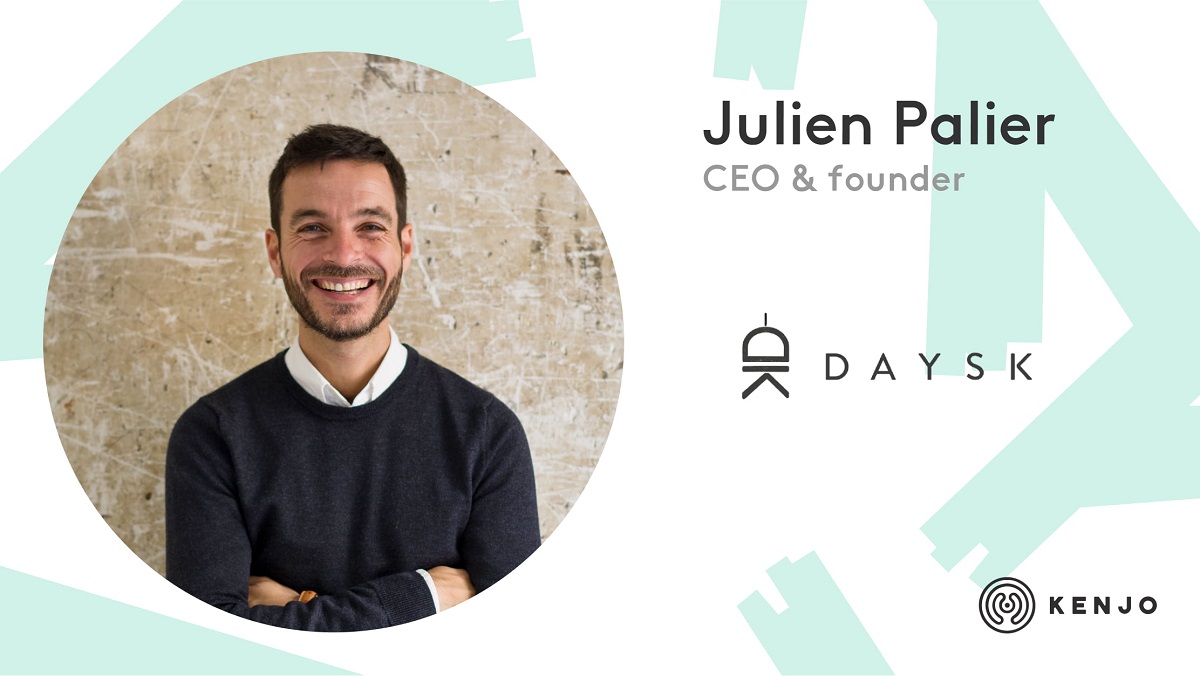
 At Kenjo, we always try to connect with the most innovative companies and those who can spot trends and incorporate them in record time. We interviewed Julien Palier, CEO of Daysk, to get his take on the times we're living in. His vision of fluid offices may be particularly interesting for those who are trying to adapt their offices to the new normal.
At Kenjo, we always try to connect with the most innovative companies and those who can spot trends and incorporate them in record time. We interviewed Julien Palier, CEO of Daysk, to get his take on the times we're living in. His vision of fluid offices may be particularly interesting for those who are trying to adapt their offices to the new normal.



